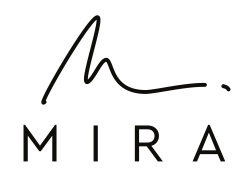Nutrition bars have gained immense popularity as convenient, on-the-go snacks packed with essential nutrients. However, their conventional packaging often involves layers of plastic, contributing to the mounting plastic pollution crisis. Recognizing this issue, forward-thinking companies have embarked on a journey to re-imagine the packaging of nutrition bars, prioritizing sustainability without compromising on the product’s nutritional value or convenience.
The concept of plastic-free nutrition bars revolves around utilizing eco-friendly materials for packaging while maintaining the integrity and freshness of the product. This entails a shift from traditional plastic wrappers to compostable or biodegradable alternatives such as paper, cardboard, or plant-based materials. These materials not only reduce environmental impact but also align with consumers’ preferences for sustainable options.
One of the primary challenges in transitioning to plastic-free packaging for nutrition bars is ensuring the preservation of product quality and shelf life. Manufacturers are investing in research and development to design packaging solutions that effectively protect the bars from moisture, oxygen, and other factors that could compromise their taste and nutritional content. Innovations such as compostable films and coatings derived from natural sources are being explored to strike the right balance between sustainability and functionality.
Furthermore, re-purposed nutrition bars go beyond just the packaging; they embody a holistic approach to sustainability. This involves sourcing ingredients from ethical and environmentally responsible suppliers, minimizing food waste throughout the production process, and adopting eco-friendly manufacturing practices. By prioritizing sustainability at every stage, these bars contribute to a more sustainable food system.
The transition to plastic-free nutrition bars also extends to consumer behavior and awareness. Educating consumers about the environmental impact of single-use plastics and the benefits of opting for sustainable alternatives is crucial for driving widespread adoption. Marketing campaigns that emphasize the eco-friendly attributes of re-purposed nutrition bars can empower consumers to make informed choices that align with their values.
Moreover, the plastic-free movement in the nutrition bar industry serves as a catalyst for broader systemic change. It sets a precedent for other food and beverage sectors to reevaluate their packaging practices and explore sustainable alternatives. As consumers increasingly demand eco-friendly options, businesses are compelled to innovate and adapt to meet these evolving preferences, driving positive change across the entire supply chain.
In conclusion, re-purposed nutrition bars represent a significant step towards a more sustainable future. By prioritizing plastic-free packaging and adopting eco-friendly practices, these bars not only reduce environmental impact but also inspire consumers and industries to embrace sustainability in all aspects of food production and consumption. As we continue to strive for a healthier planet, initiatives like plastic-free nutrition bars remind us of the power of innovation and conscious consumer choices in shaping a more sustainable world.





















